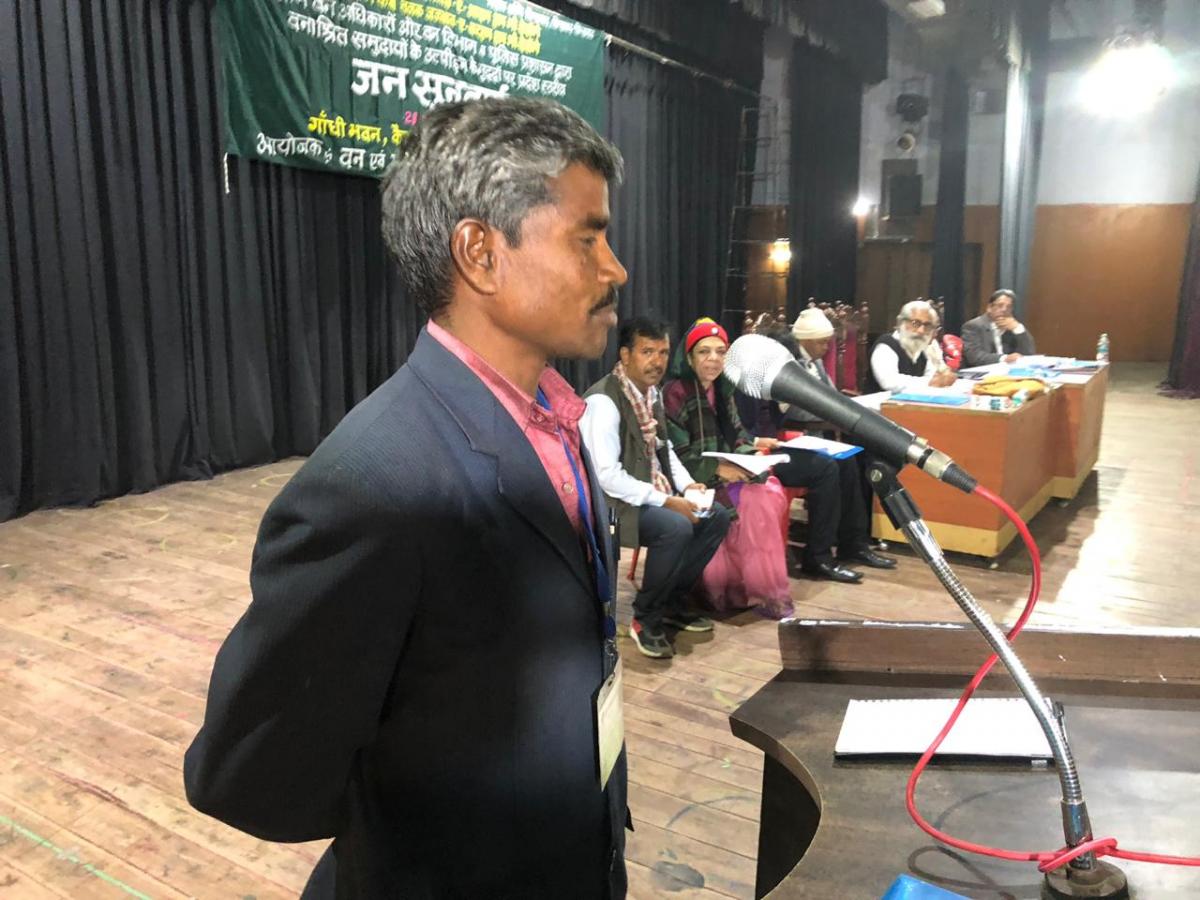The communities will have to assert themselves politically and support parties and candidates who support the forest rights issues in their campaign and demand the inclusion of Forest Rights in election manifestos.

Lucknow: Citizens and civil rights activists demanded transparency in land deals and stricter implementation of the Forest Rights Act at the one-day public hearing organised at Gandhi Bhawan, Lucknow for the tribal communities. The grievances of people from 19 districts of Uttar Pradesh were heard by former Bombay High Court judge Kolse Patil, former Judge Manu Lal Markam, human rights activist Teesta Setalvad, social worker Sandeep Pandey and jury members from other districts.
Rights activist Teesta Setalvad observed that a judicial commission should be set up against the false cases slapped on tribal and Adivasi communities and that a collective demand for a special parliamentary session exclusively for forest rights should be held in the Parliament.
She added that the communities will have to assert themselves politically and support parties and candidates who support the forest rights issues in their campaign and demand the inclusion of Forest Rights in election manifestos.
Social worker Sandeep Pandey commented on the corruption of forest departments and the police and said that forest lands were being sold without the consent of resident tribal and Adivasi communities.
In the public hearing, issues from villages like Sonbhadra, Bijnor, Lakhimpur Kheeri, Bahraich, Pilibhit, Lalitpur, Mirzapur, Chandauli, Jalaun, Chitrakoot, Madhogad, Saharanpur and from Uttarakhand, Madhya Pradesh and Bihar were raised where people spoke about the utter neglect of the Forest Rights Act from the Forest Department and the subsequent harassment they have had to face.
The report from this public hearing was sent to the state government.
The Forest Rights Act (2006), gives the tribal and other forest-dwelling population individual or collective rights over forest land for habitation, cultivation or livelihood, given the inextricable relationship between tribes and the forests, and the colonial denial of that relationship.
Despite these legal provisions, as well as eligibility for welfare schemes, the ground reality clearly highlights that there is much left to be desired in their execution. Even with the FRA, matters of land ownership for Adivasi communities is far from black and white. In UP, till 2018, 93,644 claims were received by the FRA; in turn, only 18,555 individual titles have been distributed. 74,945 claims were rejected. And UP has realized 0% of the 1,913,577 acres of potential Community Forest Rights land, a report said.